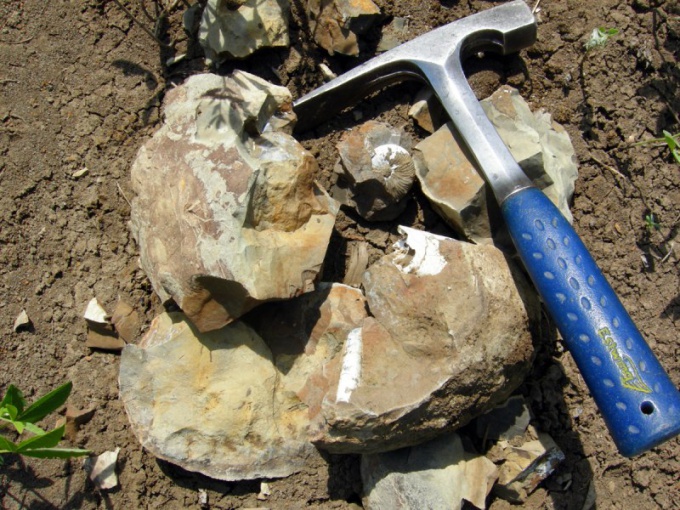One of the components of this complex of sciencesis an exploration geophysics that studies the structure of the Earth. Its main goal: the search and refinement of the structure of deposits of minerals, the identification of the prerequisites for their formation. Research is conducted on land, in the waters of the seas, fresh water bodies and oceans, in wells, from space and from the air. Due to its high efficiency, low cost, reliability and speed of work, exploration geophysics is an important part of the geological exploration process. The main methods of exploration geophysics are: seismic exploration, electrical exploration on alternating and direct current, magnetic prospecting, gravity prospecting, well logging, radiometry, nuclear geophysics and thermometry. Seismic exploration is a section of exploration geophysics that includes methods for studying the structure of the Earth, based on the excitation and registration of elastic waves. To register the vibrations of these waves, researchers use special devices - geophones, which convert the vibrations of soil particles into an electrical signal. The information obtained as a result of the research is displayed on the charts, which are called seismograms. The structure of the earth's crust is depicted on special maps on which the places of possible accumulations of minerals are determined. A geophysical method is called the geophysical method that studies changes in the acceleration of free fall associated with changes in the density of geological bodies. This method is actively used in the process of regional studies of the earth's crust, when revealing deep tectonic disturbances and searching for minerals. To carry out gravity prospecting, specialists apply gravimeters - special instruments that measure the acceleration of gravity. Magnet prospecting, as another component of geophysics, is used to search for mineral deposits. Carried out in the form of ground, aeromagnetic or marine survey. Based on the data obtained, a magnetic field map is constructed that contains graphs or isolines. It can contain areas with a quiet field and magnetic anomalies, characterized by local disturbances caused by inhomogeneity of the magnetic properties of rocks. Methods of electrical prospecting help to study the parameters of the geological section. For this, the indicators of a constant electric or alternating electromagnetic field are measured. Investigation by the induced polarization method can serve as an example of electrical exploration activities. In addition to exploratory geophysics, there is also physics of the atmosphere. Meteorological stations scattered throughout the Earth serve to compile short-term and long-term weather forecasts. In addition to the Earth's air envelope, geophysics also studies its water shell - the World Ocean, as well as the physics of the sea. Here questions are studied about currents in the ocean, tides and ebbs, the salinity of water is studied, and so on.
Tip 2: Why the school does not teach geology
Geology - the science of the Earth, its structure,origin, development, processes occurring in it. Knowledge from the field of geology is needed not only for those who seek minerals and develop deposits, but also for builders, architects, as well as representatives of many other professions. But this interesting science is studied only in high schools and some colleges. Geology is not included in the school curriculum.

Complex of sciences
Geology studies the Earth (as well as otherplanets) from different directions. That is, it is not one science, but a set of disciplines, sometimes connected with each other only indirectly. To reduce the abundance of educational disciplines to a small basic set of concepts is practically impossible. The school textbook on any subject should give basic knowledge, and different sections of a particular science should be logically related. At the same time the schoolboy learns not only the basic concepts, but also the basic principles and research methods. Modern geology has three main directions - historical, dynamic and descriptive. Each of them is actually an independent science, in which methods of research different from others are used. The authors of the school textbook would first have to decide which geology the children will study and what research methods they will begin to master.
The main directions of geology are also divided into sections, each of which in fact represents an independent science.
Basic knowledge
The study of any section of geology requiresa person of basic knowledge in several disciplines - physics, chemistry, geography, mathematics. The required level of modern Russian schoolchildren acquires only to the end of secondary school, that is, he simply does not have time to get the initial knowledge necessary to begin to study geology. Some sections of geology require knowledge of applied sciences, which are not studied in school as separate disciplines.
The study of most sections of geology requires the organization of field work, which is not always possible in school.
In other textbooks
Despite the fact that geology as a separatethere is no academic discipline in the school curriculum, elements of geology in the modern school are still being studied. So, in the course of physical geography schoolchildren receive some knowledge about the structure of the Earth, the laws of its development, occurring in the earth's crust processes. During the study of chemistry, the children will also learn about the properties of certain minerals. In the course of physics, knowledge is given about the properties and interactions of physical bodies, their density, volume, etc. The most important thing is that students learn the methods of research that are used in geology. All this is the basic knowledge for studying such geological disciplines as geophysics, geochemistry, mineralogy and a number of others.
Mugs and electives
In some schools, where they study in depthnatural sciences, children study and some sections of geology. As a rule, this science is engaged in elective classes and in circles. Theoretical lessons are combined with practical ones, and the guys spend their summer practice time in hikes and school research expeditions. But even in this case schoolchildren get elementary knowledge from just one branch of geology - mineralogy.









